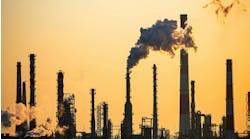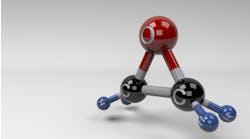Say what you will about the Trump Administration’s withdrawal from the Paris Climate Accord but one thing seems certain — it doesn’t presage a shift in the U.S. chemical industry’s attitude toward tackling the problem of greenhouse gas emissions, notably release of carbon dioxide.
[pullquote]
Just before President Trump announced his decision to pull the U.S. out of the pact, a number of CEOs of American chemical companies and international chemical firms with significant operations in the U.S. joined other industry leaders in signing an advertisement that appeared in the New York Times and Wall Street Journal strongly supporting the Paris Accord. Andrew Liveris of Dow, Edward Breen of DuPont, Feike Sijbesma of Royal DSM and Jean-Pierre Clamadieu of Solvay were among 30 CEOs of companies serving diverse sectors of the economy ranging from consumer products firms like 3M, Procter & Gamble and Unilever; food processors like Campbell Soup and Coca Cola; durable goods manufacturers like Dana, General Electric and Cummins; to financial institutions like Bank of America and Citigroup; and investment firms like Goldman Sachs and Morgan Stanley.
In addition, executives from ConocoPhillips and ExxonMobil, among other major firms like Apple and IBM, reiterated their support for the pact before President Trump revealed his decision.
As the advertisement noted, the Paris Accord offered a number of advantages, including fostering clean, energy-efficient technologies that can generate jobs and economic growth. Progressive American companies still can achieve such benefits despite the U.S. pullout.
Indeed, U.S. participation in the accord hasn’t spurred much of the attention American industry has given to helping tackle climate change. Instead, companies largely are responding to other drivers — such as ratcheting-up demand from shareholders to reduce emissions; increasing pressure to report emissions, e.g., via the reports of the not-for-profit Carbon Disclosure Project (for its latest rundown, which included inputs from nearly 1,100 companies, visit this page); and ever-growing concerns about public image. In addition, straightforward economic incentives sometimes also come into play. For instance, reducing emissions often may require improving operating efficiency, which usually provides other benefits. Likewise, recovered CO2 promises to be a low-cost resource for some processes.
Therefore, most assuredly, large, medium and small firms in the American chemical industry will continue to take important steps to reduce emissions of CO2. In addition, U.S. chemical companies undoubtedly will stay at the forefront of developing technology not only to capture CO2 but also to use the gas productively, e.g., as a feedstock.
Our cover story, “Efforts Increase to Lasso Carbon Dioxide,” highlights some noteworthy new carbon-capture installations in the U.S. as well as other significant developments around the world.
I have no doubt that the American chemical industry will not let the U.S. pullout from the Paris Accord markedly hamper its efforts to address climate change.



